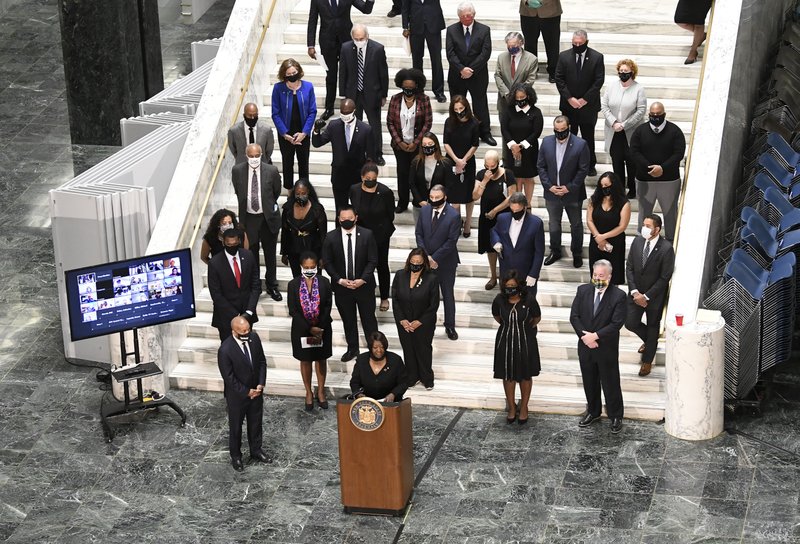As protesters of police brutality demand accountability, New York lawmakers are poised to overhaul a decades-old law that has kept officers’ disciplinary records secret.
The state law, known by its section title, 50-a, was passed in the 1970s to prevent criminal defense attorneys from subjecting officers to harassing cross-examinations about irrelevant information in their personnel file. The law applies to jail guards and firefighters, as well.
But over the years, the law has draped a veil over most records of police misconduct, including allegations. Formal complaints about excessive force by officers are not public in New York. In recent years, police departments have cited the law in refusing to say even whether officers have been punished.
The Democrat-led Legislature planned to pass a repeal Monday as part of several bills that would also ban officers from subduing people with chokeholds and enshrine in state law an executive order giving the attorney general the power to investigate certain types of police misconduct.
Gov. Andrew Cuomo said Monday that he intends to sign the bills, arguing that police officers deserve the same level of scrutiny as other government employees, such as teachers and toll takers, who he said face the release of complaint letters. The governor didn’t say when he would sign the bills.
“Their records will be available,” Cuomo said. “It is just parity and equality with every other public employee.”
The legislation is expected to easily pass in the largely Democratic Legislature, despite opposition from police unions. The leaders of a coalition of police unions argued in a statement Monday that releasing such records, including complaints, could leave officers facing “unavoidable and irreparable harm to reputation and livelihood.”
The legislation would specifically provide officers with some privacy protections, including redaction of home addresses, personal phone numbers and email addresses.
Civil liberty and criminal justice reform groups have long pushed for a repeal of a law they say is among the nation’s most secretive.
Only New York and Delaware have state laws that provide law enforcement “with special carve outs from records disclosure,” according to a statement from advocacy groups including Common Cause New York and the New York Public Interest Research Group.
Garner’s death — after he refused to be handcuffed on suspicion of selling loose, untaxed cigarettes — came during growing public outcry over police killings that gave rise to the Black Lives Matter movement.
And the idea has new momentum amid huge protests in New York over the death of George Floyd in Minnesota, and images of violent confrontations between officers and demonstrators.
“What’s become increasingly clear over the past few days is how much a lack of transparent accountability measures leads to police acting with impunity in our communities,” said Michael Sisitzky, lead policy counsel for the New York Civil Liberties Union.
“We’ve seen police officers drive cars into crowds of protesters and pull down a person’s face mask in order to pepper spray them,” Sisitzky said. “We’ve seen lawmakers arrested and pepper-sprayed while attempting to mediate.”
Other critics of repeal include Republican Sen. Patrick Gallivan —a former sheriff in Erie County, home to the state’s second largest city, Buffalo — who noted the overwhelming number of complaints against officers are deemed unfounded.
“I think people are calling for a reform that doesn’t get at any of the problems that we face as a society,” Gallivan said in an interview.
The law gained widespread attention in 2016, when New York City Mayor Bill de Blasio argued it prevented the release of disciplinary records of the police officer involved in the chokehold death of Eric Garner.
Garner’s death — after he refused to be handcuffed for allegedly selling loose, untaxed cigarettes — came at a time of a growing public outcry over police killings of unarmed black men that gave impetus to the national Black Lives Matter movement.
Garner’s mother, Gwen Carr, last year urged Cuomo and New York state lawmakers to repeal a law that she has said “is harming me and my family.”
Last fall, the New York Police Department stopped short of endorsing the full repeal but said certain documents, such as complaints, should be released in cases of serious misconduct.
(AP)











